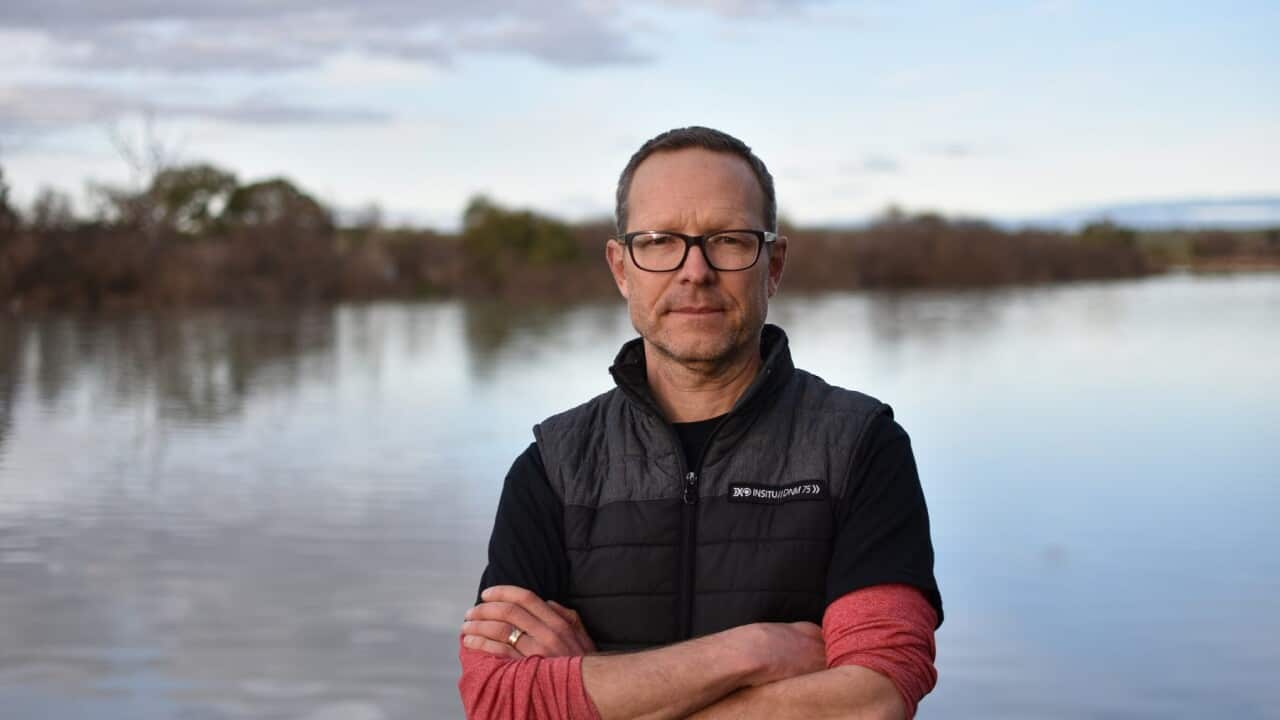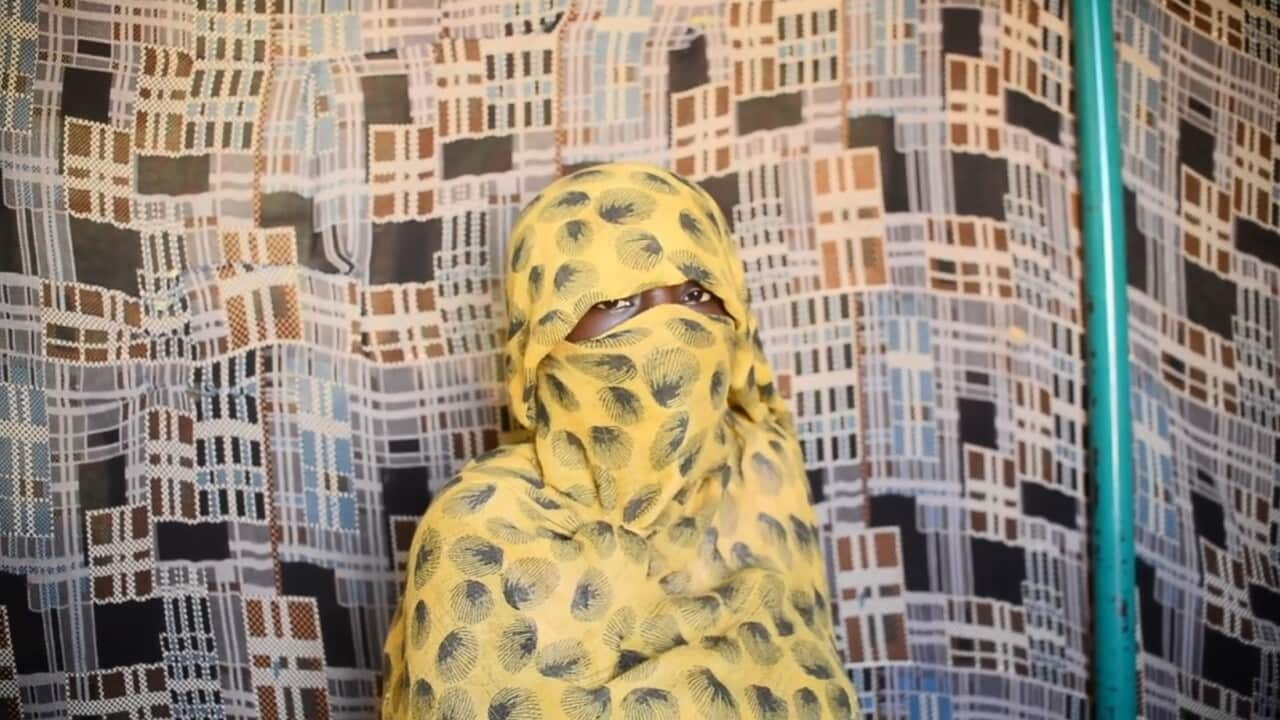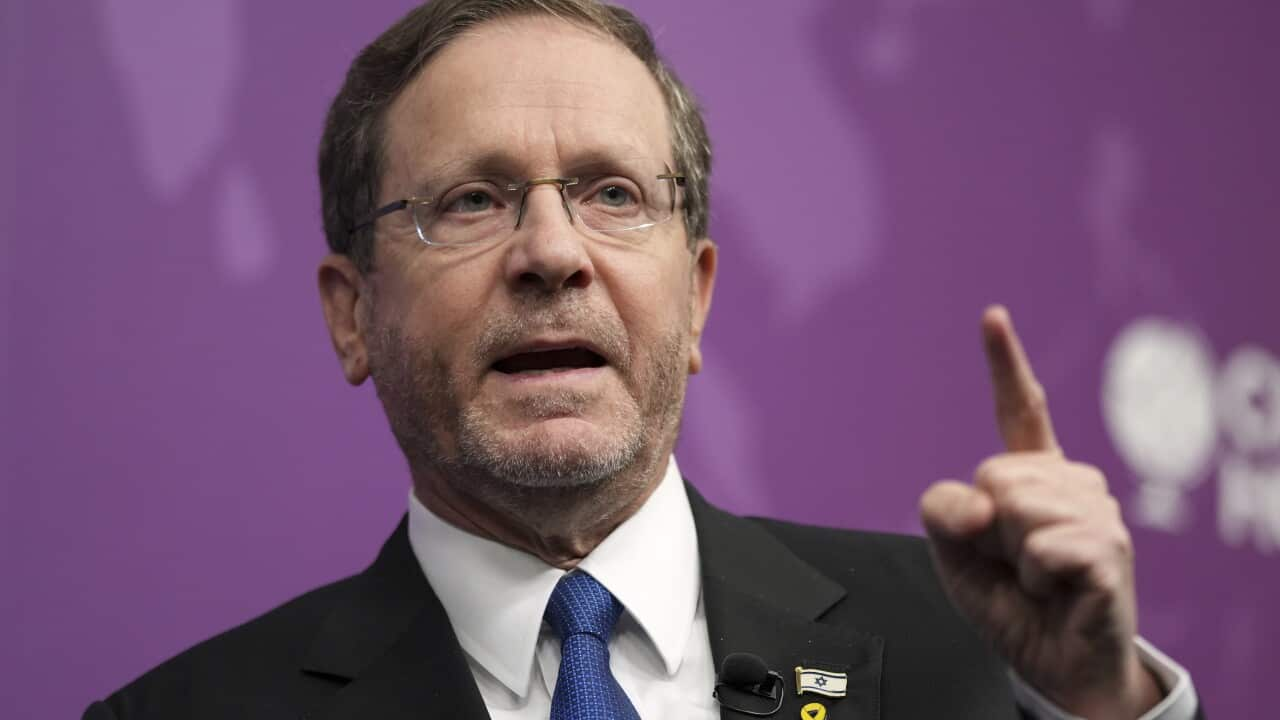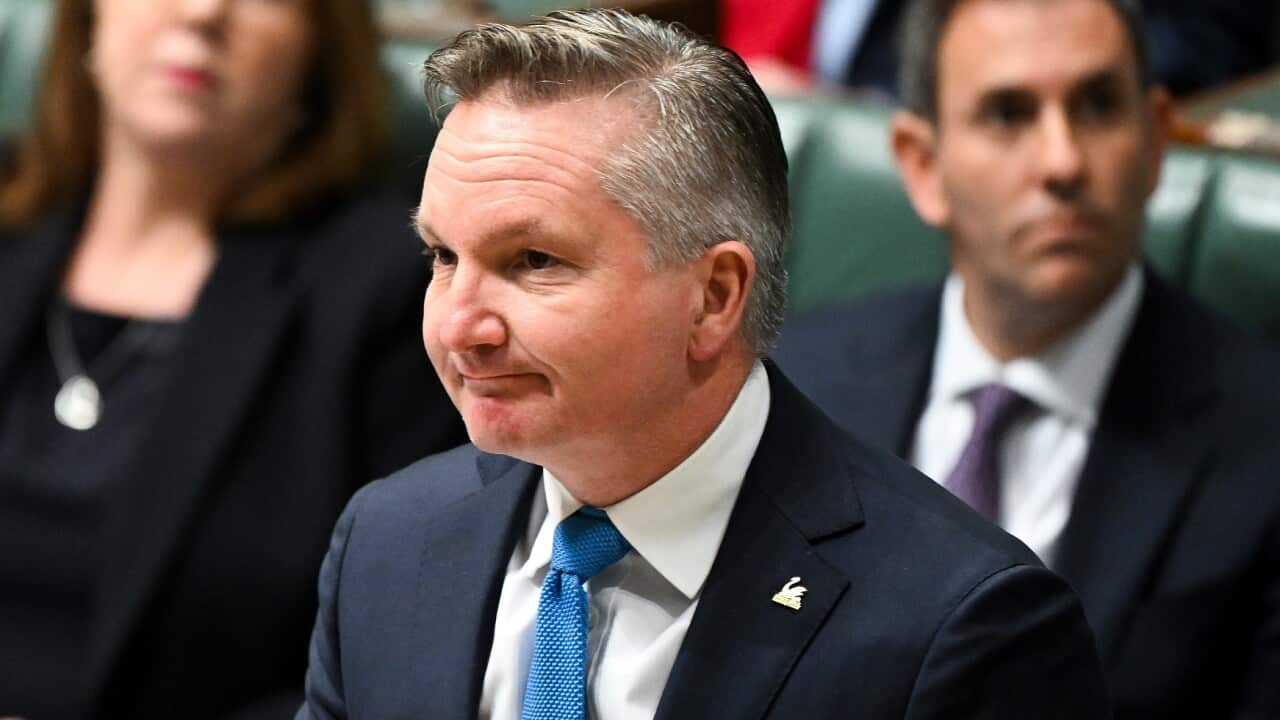Listen to Australian and world news, and follow trending topics with SBS News Podcasts.
Australian universities are sounding the alarm on a 'perfect storm' blowing through research budgets.
"It simply can't continue because we will just fall behind."
That's Vicki Thomson, the CEO of the Group of Eight Universities, which include the nation's most prestigious places of higher learning.
She says a confluence of concerning events has brought the country to a critical inflection point that must be addressed.
"So at the same time, you've seen government investment decline, business investment decline, university investment increase on the back of international students - but that's not enough to sustain us - and then you've got almost the perfect storm of what's happening in the US given that they are our largest collaborator."
The Trump administration has commenced a campaign against ivy league ((prestigious US)) institutions like Harvard and Columbia, slashing billions of dollars from their budgets.
Australian projects have lost funding too, particularly if they're deemed to be overly aligned with diversity, equity and inclusion, or climate science.
Ms Thomson says it's hard to know exactly how much funding has been pulled, but it's already in the order of $300 or $400 million.
Professor Richard Holden warns this uncertainty will only worsen a long-term decline.
"The hard truth is that we've had 15 years of bipartisan disinvestment in research expenditure. Relative to GDP, Australia's R&D spending was a third higher when Kevin Rudd was prime minister than in 2023. Over these 15 years, business expenditure is down and government expenditure is down. Only university expenditure on R&D has risen, and that increase has been almost entirely funded by foreign student fees."
The esteemed economist describes Australia as 'addicted' to funding sovereign research capability through international students.
His warning follows an election campaign in which both major parties promised to limit foreign student numbers.
Regardless of that, Professor Holden says cross-subsidising research from international student fees has always been fraught.
"In a time of global uncertainty and upheaval, this is a huge strategic risk. It places a ticking time bomb between beneath Australia's security and prosperity. International student income pays for much of our research infrastructure. It pays for buildings, electricity, scientific equipment, and a range of other overheads necessary to undertake scientific research that is partly funded by government."
He says securing the nation's sovereign research capability is essential for Australia's economic and national security.
Nobel Prize-winning astronomer Professor Brian Schmidt agrees.
"I look around and I'm actually scared."
The former Vice Chancellor and President of the Australian National University highlights the defence dividend research brings.
"In 2025, we are seeing how quickly the nature of conflict is evolving within the Russia-Ukraine war, and we can expect new technologies based around small scale automated machines, hypersonic missiles, computer warfare to feature prominently if we are ever to have future conflicts between advanced economies. In such a case, the research capability of a country will be incredibly important at influencing the overall winners and losers."
Professor Schmidt says while Australia and the US have cut costs, China has been increasing research spending massively, describing this imbalance as a 'sobering thought'.
The Nobel laureate says research requires long-term stability and it's vital to plan ahead.
"Because once the conflict starts, you kind of have what you've got, you do not suddenly create the research and researchers. That takes decades. Now I hope we never get to this state. But, nor should we stick our head in the sand and ignore the possibility."
Vicki Thomson says the university sector is well aware that the realities of research funding could become worse.
She points to domestic cuts occurring in the US as another significant threat.
"Where we are very concerned is your big funding agencies out of the US like the National Science Foundation, the National Institute of Health, they fund research all over the world and in partnership with the US obviously. And their budgets have been cut by up to 50 per cent. So if their budgets are cut, that has to have a knock on effect for our research here in Australia."
Healthcare is another area that could be affected.
Ms Thomson says mRNA vaccine facilities based in Melbourne have been partly funded through US agencies that are now facing cuts.
"If we start to threaten big research collaborations like that then, you know, we're in a lot of trouble. And the other the other point is, research doesn't happen in isolation. All the expertise doesn't sit in Australia. So just the very nature of research is that we do that with the best teams, wherever they are, whether they're with other university partners in Australia or other university partners globally. So we're certainly in a more volatile and complex situation than potentially we ever have been."
In addition to greater funding from government and private business, she's calling for increased engagement with investment from markets outside the US.
"What we are doing now is really working with our government on where can we look for other big pots of funding to support our research effort. One of those is Europe and that's through Horizon Europe. So that is the world's largest research fund at 95 billion euros. We have an opportunity and we've had an opportunity for some years to actually have a seat at that table to be able to access greater share of the funding than we do."
Despite deep concern in the sector, Ms Thomson emphasises the idea that the current challenges also present opportunities.
Professor Holden agrees.
"With the US stepping back from its leadership role, Australia has a chance to step up in coming months and years. Many leading US researchers may be looking to move their labs, their families and their lives abroad. If we act decisively, Australia can be as or more attractive a destination for those researchers as Europe."
He says in a world which is being rapidly re-shaped by new technologies and geopolitical shifts, investment in research can bring enormous rewards.
While Australia's future may lay beyond our vision, he says, it is not beyond our control.
"We have a choice. We can embrace this technological moment or miss it. We can meet this moment, or miss it, we can secure our research sovereignty or surrender it. I hope we'll do the former."













